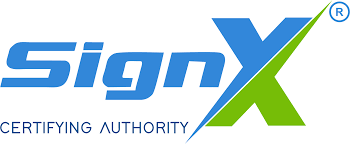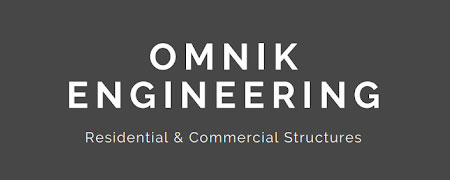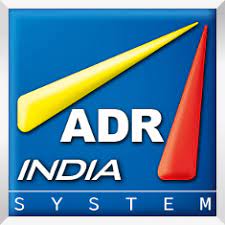

At Shamim's Trading Corporation, we offer a wide range of reliable and efficient services to meet your digital signature needs. Our company is a leading Digital Signature Agency in Delhi. With a team of experienced professionals and advanced technology, we strive to provide top-notch solutions to individuals and businesses alike. We are proud to offer a comprehensive suite of DSC (Digital Signature Certificate) services in partnership with VSign, Pantasign, and eMudhra.
Shamim's Trading Corporation offers a wide range of DSC services in collaboration with VSign, Pantasign, and eMudhra. We are committed to providing the best VSign, Pantasign, eMudhra DSC Services in India. With expert guidance, quick issuance, and compliance with legal requirements, we ensure that your digital signatures are secure, legally recognized, and meet your specific needs. Choose us for all your digital signature requirements and experience the convenience and reliability of our services. Our pricing is competitive, making our digital signature services accessible to individuals and businesses of all sizes.
Read More About UsDigital signature certificate services are designed to help individuals and businesses securely sign their electronic documents. Shamim's Trading Corporation offers reliable and cost-effective Digital Signature Certificate Services in Delhi.
| Product name | Certifying Authority Name | Validity | Type | Price | Action |
|---|---|---|---|---|---|
| Class 3 Digital Signature for Individuals |

|
2 | Individuals | 1499 | |
| Class 3 Digital Signature for Individuals |

|
3 | Individuals | 1899 | |
| Class 3 Digital Signature for Individuals |

|
2 | Individuals | 1149 | |
| Class 3 Digital Signature for Individuals |

|
3 | Individuals | 1549 | |
| Class 3 Digital Signature for Individuals |

|
2 | Individuals | 1199 | |
| Class 3 Digital Signature for Individuals |

|
3 | Individuals | 1599 | |
| Class 3 Digital Signature for Individuals |

|
2 | Individuals | 1199 | |
| Class 3 Digital Signature for Individuals |

|
3 | Individuals | 1599 | |
| Class 3 Digital Signature For Organization |

|
2 | Organization | 1599 | |
| Class 3 Digital Signature For Organization |

|
3 | Organization | 1999 | |
| Class 3 Digital Signature For Organization |

|
2 | Organization | 1249 | |
| Class 3 Digital Signature For Organization |

|
3 | Organization | 1649 | |
| Class 3 Digital Signature For Organization |

|
2 | Organization | 1299 | |
| Class 3 Digital Signature For Organization |

|
3 | Organization | 1699 | |
| Class 3 Digital Signature For Organization |

|
2 | Organization | 1299 | |
| Class 3 Digital Signature For Organization |

|
3 | Organization | 1699 | |
| Class 3 Digital Signature with Encryption(Combo) |

|
2 | Individuals | 1799 | |
| Class 3 Digital Signature with Encryption(Combo) |

|
3 | Individuals | 2299 | |
| Class 3 Digital Signature with Encryption(Combo) |

|
2 | Organization | 1999 | |
| Class 3 Digital Signature with Encryption(Combo) |

|
3 | Organization | 2499 | |
| Class 3 Digital Signature with Encryption(Combo) |

|
2 | Individuals | 1699 | |
| Class 3 Digital Signature with Encryption(Combo) |

|
3 | Individuals | 2099 | |
| Class 3 Digital Signature with Encryption(Combo) |

|
2 | Organization | 1899 | |
| Class 3 Digital Signature with Encryption(Combo) |

|
3 | Organization | 2299 | |
| Class 3 Digital Signature with Encryption(Combo) |

|
3 | Organization | 2299 | |
| Class 3 Digital Signature with Encryption(Combo) |

|
2 | Individuals | 1699 | |
| Class 3 Digital Signature with Encryption(Combo) |

|
3 | Individuals | 2099 | |
| Class 3 Digital Signature with Encryption(Combo) |

|
2 | Organization | 1899 | |
| DGFT Digital Signature For Import/Export |

|
2 | Organization | 1999 | |
| DGFT Digital Signature For Import/Export |

|
3 | Organization | 2499 | |
| DGFT Digital Signature For Import/Export |

|
2 | Organization | 1899 | |
| DGFT Digital Signature For Import/Export |

|
3 | Organization | 2399 | |
| DGFT Digital Signature For Import/Export |

|
2 | Organization | 1699 | |
| Foreign National DSC |

|
2 | Individuals | 2199 | |
| Foreign National DSC |

|
2 | Organization | 2399 | |
| Class 3 Digital Signature (Encryption Only) |

|
2 | Individuals | 1499 | |
| Class 3 Digital Signature (Encryption Only) |

|
3 | Individuals | 1899 | |
| Class 3 Digital Signature (Encryption Only) |

|
2 | Organization | 1599 | |
| Class 3 Digital Signature (Encryption Only) |

|
3 | Organization | 1999 | |
| Class 3 Digital Signature (Encryption Only) |

|
2 | Individuals | 1149 | |
| Class 3 Digital Signature (Encryption Only) |

|
3 | Individuals | 1549 | |
| Class 3 Digital Signature (Encryption Only) |

|
2 | Organization | 1249 | |
| Class 3 Digital Signature (Encryption Only) |

|
3 | Organization | 1649 | |
| Class 3 Digital Signature (Encryption Only) |

|
2 | Individuals | 1199 | |
| Class 3 Digital Signature (Encryption Only) |

|
3 | Individuals | 1599 | |
| Class 3 Digital Signature (Encryption Only) |

|
2 | Organization | 1299 | |
| Class 3 Digital Signature (Encryption Only) |

|
3 | Organization | 1699 |


Choose any plan to get started with your secure and certified digital signature services
Select your plan with just the advance
payment of Rs 499 to enjoy our services
We accept all the modes of payment
for the due amount to start our services

I'm pleased with Shamim's Trading Corporation for their swift service in obtaining my Class 3 DSC. Excellent assistance and hassle-free process.

Efficiently acquired my Foreign National DSC through Shamim's Trading Corporation. Professional service with clear guidance. Highly recommended.

Purchased V Sign Digital Signature smoothly via Shamim's Trading Corporation. Quick response and easy transaction process. Satisfied with their service.

Shamim's Trading Corporation facilitated my Class 3 Digital Signature seamlessly. Courteous staff and prompt assistance. Delighted with their service.

Reliable PROXKEY TOKEN service from Shamim's Trading Corporation. User-friendly interface and timely delivery. Trustworthy provider, highly commendable.

Highly satisfied with the Buy SignX Digital Signature service from Shamim's Trading Corporation. Seamless purchase process and excellent customer support.

Highly satisfied with the Buy SignX Digital Signature service from Shamim's Trading Corporation. Seamless purchase process and excellent customer support.

Reliable PROXKEY TOKEN service from Shamim's Trading Corporation. User-friendly interface and timely delivery. Trustworthy provider, highly commendable.

Shamim's Trading Corporation facilitated my Class 3 Digital Signature seamlessly. Courteous staff and prompt assistance. Delighted with their service.

Purchased V Sign Digital Signature smoothly via Shamim's Trading Corporation. Quick response and easy transaction process. Satisfied with their service.

Efficiently acquired my Foreign National DSC through Shamim's Trading Corporation. Professional service with clear guidance. Highly recommended.

I'm pleased with Shamim's Trading Corporation for their swift service in obtaining my Class 3 DSC. Excellent assistance and hassle-free process.
Since the advent of digitalization, every business, service provider, and even individual has realized the importance of digital signatures.

Apply for DSC with your PAN card or Aadhaar, receive instant approval, and download your DSC within minutes. We’ve partnered with brands like Vsign, sify safescrypt, Pantasign, emudhra.
Shamim’s Trading Corporation offers the authentic and secure procedure of digital signature certification. From the registration part to downloading the approved DSC, we ensure to deliver the right guidance and services to our clients.

Shamim’s Trading Corporation is well-versed as the most reputed company, offering an authentic digital signature. From trusted and renowned client-based, we have earned immense recognition among our customers



















DSC Signature is a technology-driven platform which provides professional services in India. We strive to provide the best service to our customers:
In India as per IT ACT 2000, Digital Signature Certificate is legally valid identity of any subscriber including his or her personal information such as name, email id, PAN, State etc. To sign documents online we need digital signature certificate to authenticate it. A digital signature is an electronic form of a signature that can be used to authenticate the identity of the sender of a message or the signer of a document, and also ensure that the original content of the message or document that has been sent is unchanged. Digital signatures are easily transportable and cannot be imitated by someone else. The ability to ensure that the original signed message arrived means that the sender cannot easily disclaim it later.
Digital Signature Certificates (DSC) is the electronic format of physical or paper certificate like a driving License, passport etc. Certificates serve as proof of identity of an individual for a certain purpose; for example, a Passport identifies someone as a citizen of that country; who can legally travel to any country. Likewise, a Digital Signature Certificate can be presented electronically to prove your identity, to access information or services on the Internet or to sign certain documents digitally.
A Digital Signature Certificate authenticates your identity electronically. It also provides you with a high level of security for your online transactions by ensuring absolute privacy of the information exchanged using a Digital Signature Certificate. You can use certificates to encrypt information such that only the intended recipient can read it. You can digitally sign information to assure the recipient that it has not been changed in transit, and also verify your identity as the sender of the message.
Yes, it is possible to obtain a Digital Signature Certificate (DSC) that is recognized by the Indian government. There are several authorized Certifying Authorities in India that issue DSCs in compliance with the Information Technology Act, of 2000. These certificates can be used for various government-related online transactions and e-filing purposes.
A Digital Signature Certificate (DSC) serves as an electronic equivalent of a handwritten signature. It ensures the authenticity, integrity, and non-repudiation of digital documents and transactions. A DSC is issued by a Certifying Authority after verifying the applicants identity. It contains the applicants public key, which is used to encrypt and digitally sign documents. The recipient can verify the signatures validity using the corresponding public key. DSCs are widely used for secure online communication, e-filing of documents, and other government-related transactions.
A digital signature is a mathematical technique used to verify the authenticity and integrity of digital documents or messages. On the other hand, a digital signature certificate is a digital document issued by a trusted third party, certifying the authenticity of the digital signature and linking it to the identity of the signer.
A digital signature certificate is not mandatory for everyone. However, it is highly recommended for individuals and businesses who engage in online transactions, electronic filing of documents or want to ensure the authenticity and integrity of their digital communications. It provides added security and legal validity to your online activities.
A digital signature certificate has a limited validity period to ensure the security and integrity of the certificate. As technology and encryption methods advance, older certificates can become vulnerable to attacks. By setting an expiration date, it ensures that certificates are regularly updated with stronger security measures.